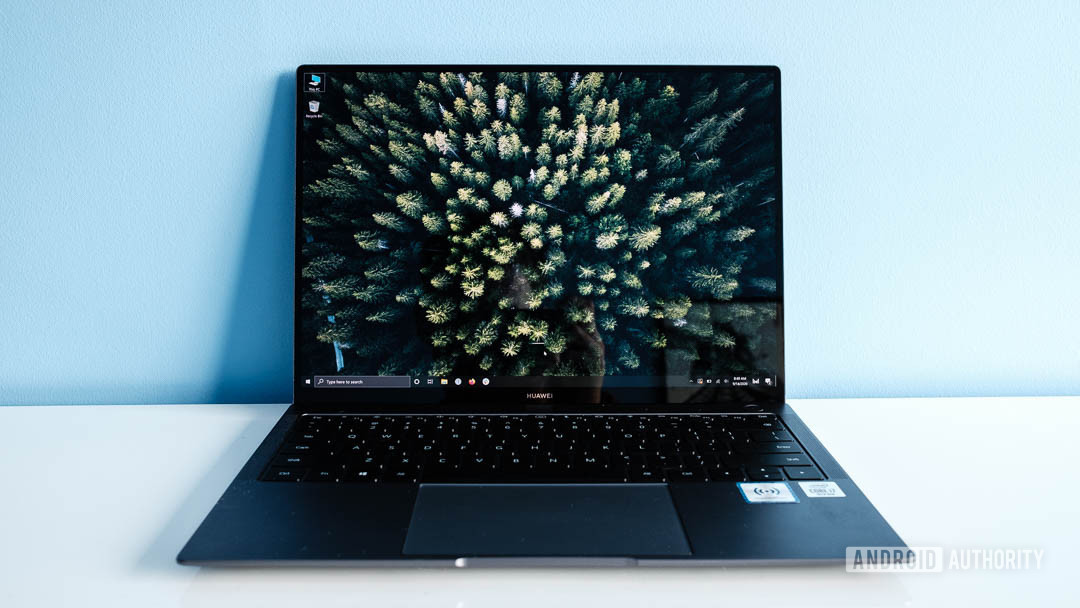
When Huawei released the original MateBook X Pro in 2018, it was one of the best high-end ultrabooks you could buy. Its nearly bezel-less display and premium construction made it stand out among both its Windows and Apple competitors.
Two years and three revisions later, the competition has gotten better. Apple’s MacBook lineup is in a better place in 2020 than at any point since 2016. And on the Windows side of things, you can’t go wrong with an ultrabook from Dell, HP, or Asus. The question then becomes, is a minor refresh enough to keep the MateBook X Pro at the top?
This is Android Authority’s review of the 2020 MateBook X Pro.
What is the MateBook X Pro?
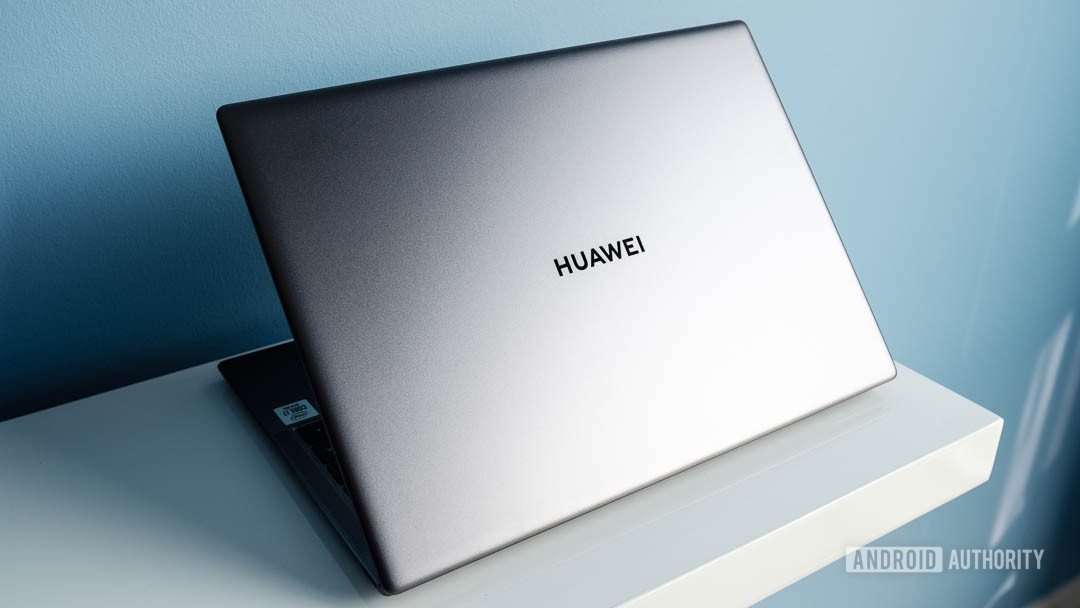
The 2020 MateBook X Pro is the third iteration of Huawei’s high-end ultrabook. New to this year’s model is the inclusion of Intel’s 10th-generation Comet Lake U-series processors.
You can configure the MateBook X Pro with either a Core i7-10510U or i5-10210U chip. Neither is a significant upgrade on the 9th-gen processors that came with the 2019 MateBook X Pro — or, for that matter, a reason to upgrade from an older laptop.
Related: The best laptops you can buy
Also new this year is the addition of an “Emerald Green” color variant. I haven’t seen this model in person, but judging from photos, it’s the lineup’s standout. And that’s the extent of the changes Huawei made to the MateBook X Pro for 2020. For better and worse, the company didn’t tweak the underlying design of the MateBook X Pro.
Who is the MateBook X Pro for?
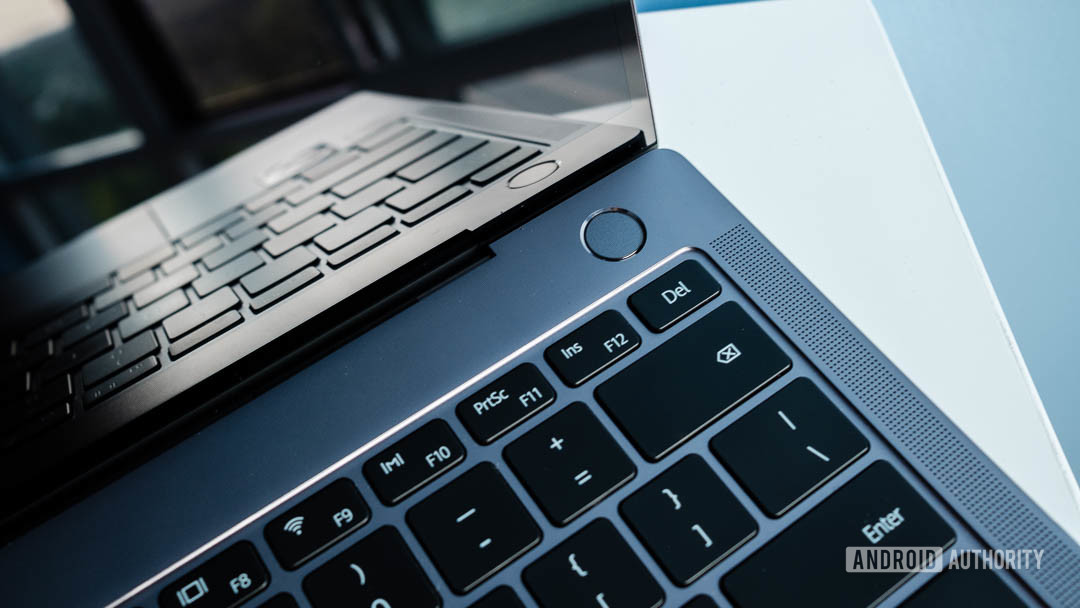
While almost anyone who sets their eyes on the MateBook X will fall in love with its display, the specific characteristics of that screen make it better suited for some use cases over others. In particular, its 3:2 aspect ratio makes the most of Windows 10’s snapping function. Add 100% sRGB coverage and a 3,000 by 2,000 resolution, and you have a display that’s perfect for productivity tasks like writing and photo editing, as well as watching video content.
However, those same display traits make the MateBook X Pro less suited for gaming. Playing any modern game at the MateBook X Pro’s native resolution requires more processor and GPU horsepower than the ultrabook has to offer. Moreover, with the display capped at a 60Hz refresh rate, even older titles don’t feel particularly smooth. I bring this up not as a knock against the MateBook X Pro, but to point out that it’s not a jack of all trades. Those who want a computer that is suited for both productivity and gaming should look elsewhere.
What’s it like to use the MateBook X Pro?

From the moment you first remove the MateBook X Pro from its packaging, two things stand out. At approximately 1.33kg, there’s a surprising amount of weight to the computer. Thanks to its 2:3 display, the MateBook X Pro also has a more square footprint than the usual 16:9 laptop. Together these things help make the MateBook X Pro feel solid. Add its brushed aluminum exterior to that, and you have a machine that feels premium.
The MateBook X Pro has one of the better keyboards I’ve used on a Windows laptop, but it's not perfect.
Overall, the MateBook X Pro has one of the better keyboards I’ve used on a Windows laptop, but it’s not perfect. Key travel is on the shallow side, and the spacebar didn’t feel great. At least on my unit, the left stabilizer has more give than its right-hand counterpart, so no two taps of the key feel consistent with one another. Comparing it to what Apple offers, what’s here is, unsurprisingly, better than the Cupertino company’s old Butterfly keyboard, but not quite as good as its new Magic Keyboard.
The trackpad is one of the more generous ones you’ll find on a Windows laptop, but it has a similar issue to the spacebar where the left side of the pad has more give than the right. Neither of these are deal-breakers, but I found the MateBook X Pro doesn’t quite live up to its reputation as the MacBook of Windows laptops.
What’s the software situation like on the MateBook X Pro?
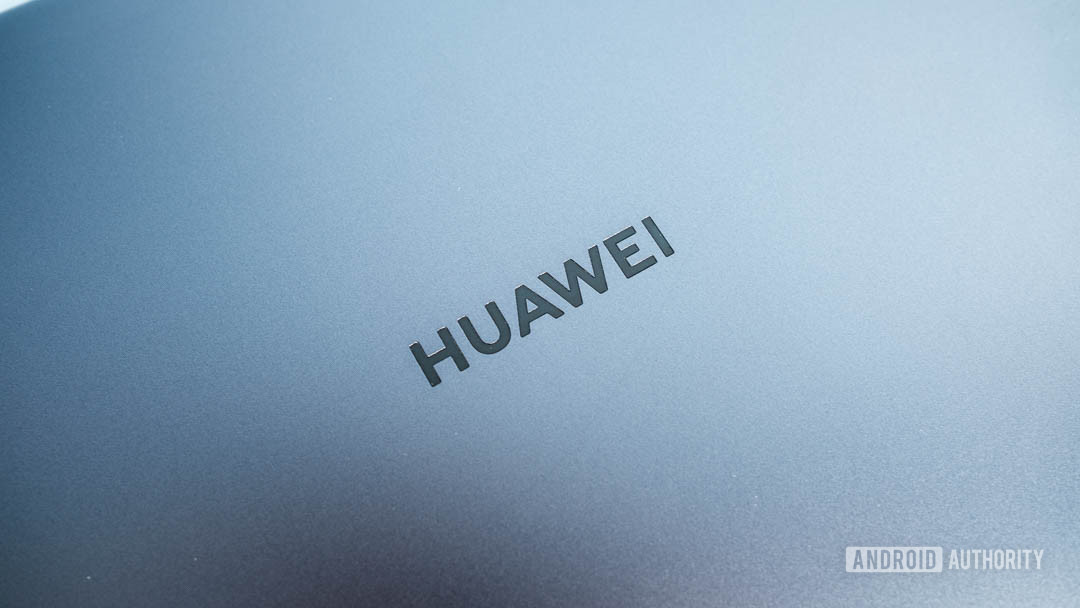
The MateBook X Pro comes with Windows 10 pre-installed. Normally that wouldn’t be worth a separate section, but then Huawei finds itself in an unusual position. At least for the moment, it doesn’t seem like the company will lose access to Windows in the same way that it did Android thanks to US trade sanctions. I don’t know if any of us can say for sure what the future holds for Huawei, so I think it’s reasonable to avoid the MateBook X Pro if you don’t want to deal with the uncertainty surrounding the company.
As for the software experience itself, there’s little to complain about here. The MateBook X Pro comes with two main apps pre-installed: PC Manager and Huawei Share. The former is a hub you can use to check the health of your system and manage drivers. The latter allows you to share files and the screen from your Huawei phone.
The best thing I can say about all the additional software that comes with the MateBook X Pro is that it’s easy to ignore. None of it is intrusive and there’s no actual bloatware to speak of.
What’s performance like?
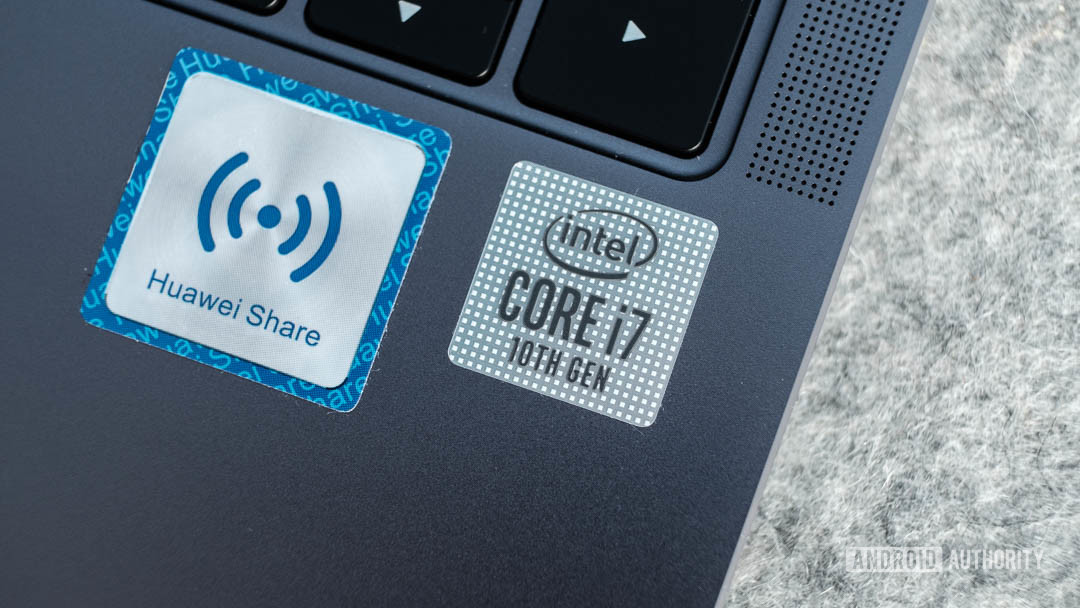
The MateBook X Pro unit I tested featured the four-core, eight-thread Core i7-10510U processor, 16GB of RAM, and a 1TB NVMe drive. As mentioned above, the jump to a 10th-gen chip from Intel is not as significant of an upgrade as you might think. The i7-10510U is part of Intel’s Comet Lake family, not its new 10nm Ice Lake series. With the latter, Intel is claiming significant improvements in single-threaded and multi-threaded performance. By contrast, Comet Lake promises more modest gains over its previous generation chips.
What’s more, the MateBook X Pro’s thermal design prevents it from taking full advantage of the new silicon. Both the i5-10210U and i7-10510U are 15W TDP chips, but at least when it comes to the i7-10510U, it only runs on about 12W of power. This means the MateBook X Pro performs worse than other laptops with the same processor.
In GeekBench, my unit logged single and multi-core scores of 632 and 2,557. Looking through the company’s database, I found HP x360 and Asus ZenBook models that scored in the 1,000 and 3,300 ranges. The tradeoff to all this is you rarely hear the MateBook X Pro’s fans spin up to an audible volume. For the most part, it also doesn’t get hot.
I found the MateBook X Pro was more than enough for what I needed it to do
In practice, I found the MateBook X Pro was more than enough for what I needed it to do. I don’t do any video editing as part of a job or hobby, and where the MateBook X Pro lacks in raw processor performance, it makes up in other places. For instance, turning on the computer and quickly logging in with the built-in fingerprint sensor was consistently fast.
In terms of battery life, I found I could get about six to seven hours from a single charge of the MateBook X Pro’s 56Wh battery when using the computer for mostly work-related tasks.
Is the MateBook X Pro a good WFH device?
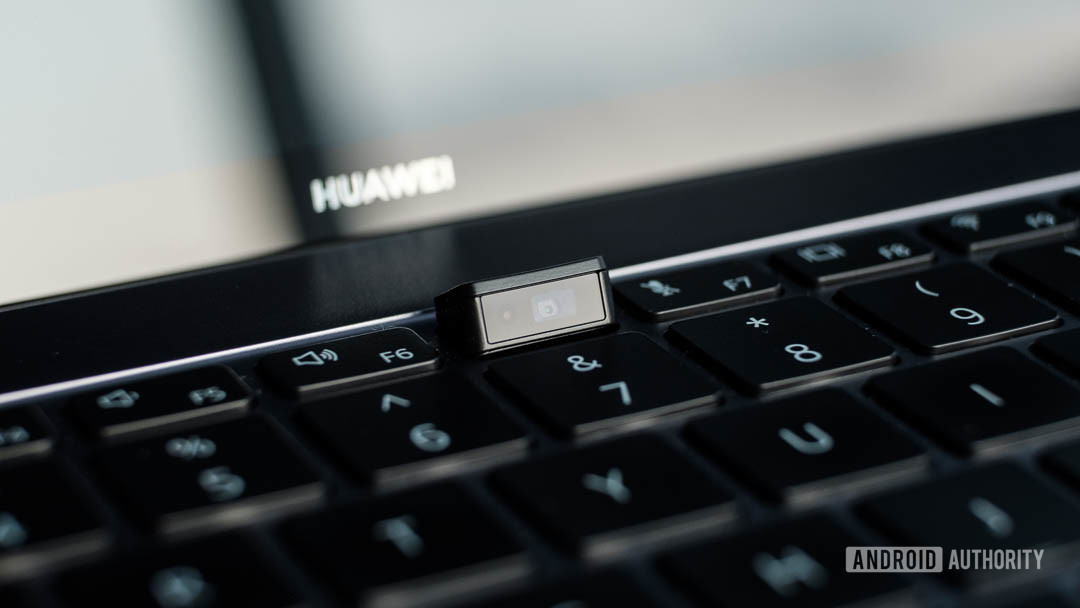
If you’re in the market for a new laptop, chances are you’ll be using it to work from home. As a work from home device, the MateBook X Pro is a mixed bag.
Let’s start with the positives. Included in the box is a hub that includes single HDMI, VGA, USB-A, and USB-C ports. No need to buy an overpriced dongle to expand the connectivity of the MateBook X Pro. As someone who needs an ergonomic setup to not to be miserable after a long day of sitting in front of the computer, the fact I didn’t need to buy an extra peripheral to use my monitor with the MateBook X Pro was something I appreciated a lot. I would have liked the hub to have a DisplayPort instead of a VGA connection, but having legacy I/O means you will always have a way to connect the MateBook X Pro to a monitor or projector.
In much the same way, I also appreciated the MateBook Pro X’s port selection. It comes with two USB-C ports, a headphone jack, and a single USB-A connection. All that’s missing here is an SD card slot.
These might seem like small things, but together, they allowed me to quickly start using the MateBook X Pro as my daily driver without so much as a hiccup.
Where the MateBook X Pro fares worse in the current coronavirus era is making video calls. The MateBook X Pro’s 1MP web camera is hidden underneath a pop-up button located between the F6 and F7 function keys. Huawei’s decision to place the web camera here was questionable in 2018. Now that many of us spend most of our workday on Zoom calls, it looks even worse.
The majority of laptop web cameras offer terrible video quality, but the MateBook X Pro makes things worse with this unflattering angle. If you happen to do any typing while on a video call, your hands will frequently block the camera too. If you decide to buy the MateBook X Pro, you’ll want to consider a separate web camera.
What I liked about MateBook X Pro
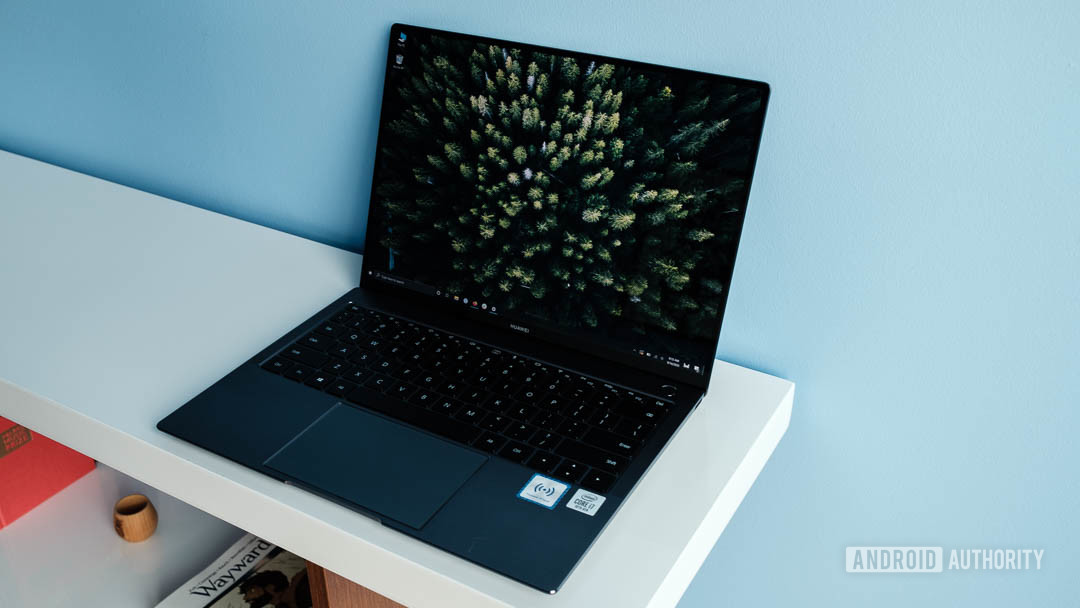
By far the most enjoyable aspect of the MateBook X Pro is its display. It made writing articles, editing photos, and watching YouTube and Netflix videos a joy. It’s a shame more manufacturers don’t adopt the 2:3 aspect ratio.
For most of my needs, I found the MateBook X Pro also offered a fast enough experience. There wasn’t any moment where I felt like the laptop was holding me back.
What I didn’t like about MateBook X Pro
Besides the webcam, not much. I wish performance was better for more intensive tasks, and that the system could be used for more serious gaming. However, as a productivity machine, the MateBook X Pro leaves little to be desired.
Should you buy the MateBook X Pro?
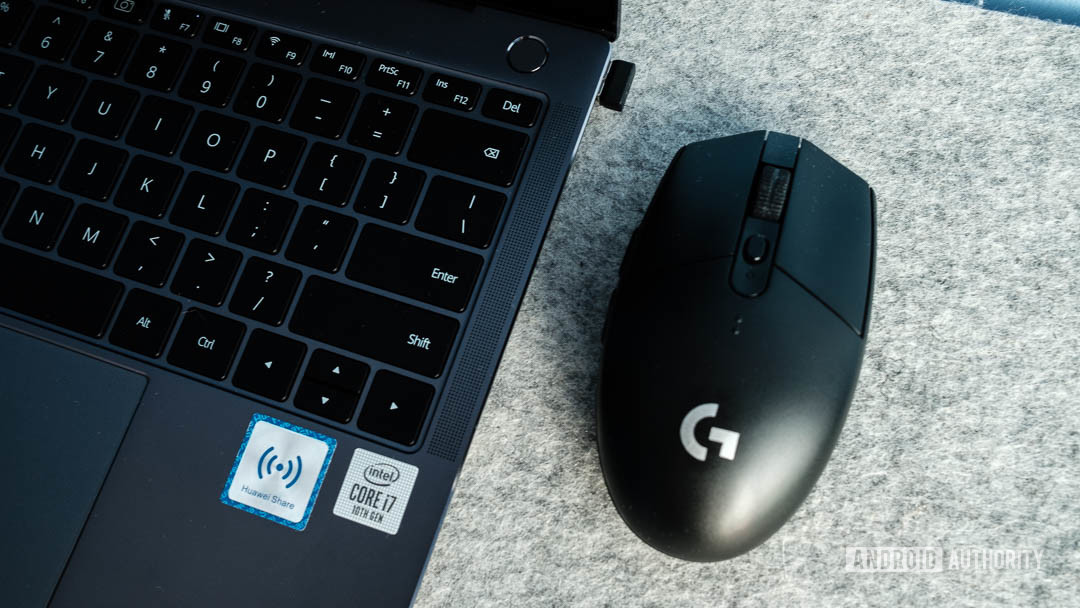
If you live in America, this is an easy one to answer. Due to ongoing sanctions against Huawei put in place by the Trump administration, the MateBook X Pro is not available to buy in the US. You could try to ship it in from another country, but with no shortage of great ultrabook options, there’s little reason to go out of your way to buy the MateBook X Pro.
Things get more complicated if you live outside of the US. In Canada, where I live, the specific model I reviewed normally costs $2,499.99, though I’ve seen it on sale for $2,299.99.
That price tag puts the MateBook X Pro in the same price range as the $2,399 13-inch MacBook Pro with 4 USB-C ports. That model has half as much storage as the MateBook X Pro, but crucially features a 2.0GHz Core i5 processor with a 28W TDP, which should make it better suited for professional tasks.
On the Windows side of things, you can get the top-of-the-line Dell XPS 13 model for $2,299.99 — though it’s currently on sale for $2,099.99. Like the MacBook Pro, it comes with half as much storage as the MateBook X Pro, but it has the same amount of RAM, a 4K display, and one of Intel’s new 10nm laptop processors.
I’ll also point out here as far as availability in Canada is involved, you can’t buy the Core i5 model at the moment. It’s not available at any of the retailers Huawei lists on its website. You have to look elsewhere if the Core i7 model is out of your budget.
Whether it makes sense to buy the MateBook X Pro will depend on how you feel about what it brings to the table that other laptops do not. As beautiful as the MateBook X Pro’s 2:3 display is, you have other options such as Microsoft’s Surface Laptop 3 if you want something similar. Those computers have the added advantage of greater availability, particularly if you don’t need a laptop with the best possible specs, as well as web cameras that are better suited for the current moment. I would look at those options before considering the MateBook X Pro. But if price is not a problem, and you can actually find one where you live, the MateBook X Pro is a compelling option.
from Android Authority https://ift.tt/30u9lX6

No comments:
Post a Comment